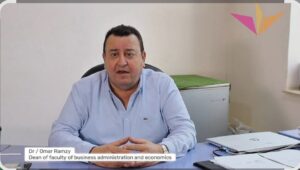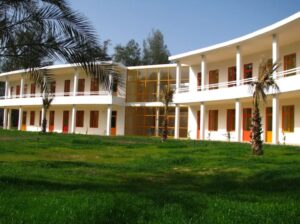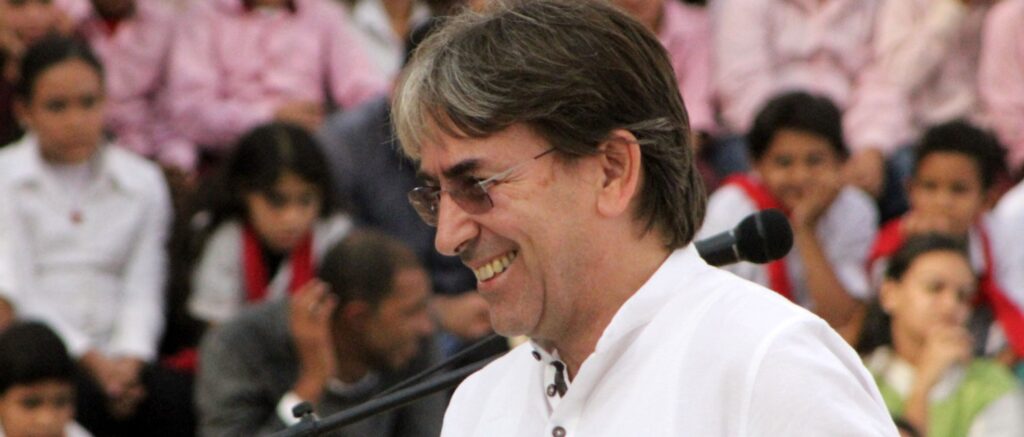SEKEM Guest House: A Revolutionary Model Where Sustainability Meets Egyptian Hospitality
Seventeen years after academic researchers hailed SEKEM as a groundbreaking example of macro-level social entrepreneurship, the vision has evolved into something even more remarkable, a living testament to how sustainable communities can thrive and inspire the world.
In the heart of Egypt’s desert landscape, a groundbreaking hospitality concept is redefining what it means to travel responsibly while experiencing authentic culture.
From Academic Case Study to Global Model
In 2008, researchers Ayman ElTarabishy and Marshall Sashkin published a comprehensive analysis of SEKEM in MIT Technology Review, identifying it as a rare example of successful “macro-level social entrepreneurship.” They highlighted three critical elements that made SEKEM’s founder, Ibrahim Abouleish, successful where others had failed: genuine innovation, exceptional entrepreneurial character, and a deep understanding of social context.
The researchers noted that SEKEM wasn’t simply an organic farm; it was “a comprehensive development initiative” that integrated multiple social elements, including business innovation, education, healthcare, and cultural preservation. What impressed them most was Abouleish’s pragmatic approach: rather than following a rigid plan, he “lit many fires” with interconnected efforts that eventually produced transformational change across Egyptian agriculture.
Seventeen years later, their prediction has proven remarkably prescient. What began as an organic farming experiment has matured into a thriving ecosystem that demonstrates how social entrepreneurship can scale without losing its soul.
More Than Accommodation: A Living Laboratory
The SEKEM Guest House stands as a testament to the power of visionary thinking in sustainable tourism. Located within Egypt’s internationally acclaimed SEKEM sustainable community, this unique destination transcends traditional hospitality by offering guests something unprecedented: the opportunity to live within a fully functioning model of holistic development.
Unlike conventional eco-lodges that simply minimize environmental impact, the SEKEM Guest House operates as an integral part of a thriving sustainable ecosystem. Every aspect of a guest’s stay contributes to and benefits from the community’s comprehensive approach to environmental stewardship, social responsibility, and economic viability.
The Innovation That Transformed a Nation
The SEKEM story began in 1977 when Ibrahim Abouleish, a pharmacologist who had built a successful career in Austria, returned to Egypt with an audacious goal: to eliminate pesticide use in Egyptian cotton production while creating a comprehensive sustainable community. His vision, as he described it, was poetic yet practical: “In the midst of sand and desert I see myself standing before a well drawing water. Carefully I plant trees, herbs and flowers and wet their roots with the precious drops… For me this idea of an oasis in the middle of a hostile environment is like an image of the resurrection at dawn, after a long journey through the nightly desert.”
Starting with just 70 hectares of untouched Egyptian desert 60 km northeast of Cairo, Abouleish used biodynamic agricultural methods to revitalize desert land and develop what would become a thriving agricultural business. The 2008 academic analysis revealed the true scope of his achievement—according to the researchers’ account, “all cotton production in Egypt eventually ceased to use pesticides” as a direct result of SEKEM’s persistent advocacy and demonstration projects.
This wasn’t merely agricultural reform; it was a public health revolution. The massive reduction in pesticide use across Egypt’s agricultural sector represented one of the most significant environmental health victories in the developing world, directly attributable to one social entrepreneur’s vision and persistence.
Recognition and Global Impact
In 2003, the Schwab Foundation awarded Dr. Abouleish as one of the world’s outstanding Social Entrepreneurs. That same year, SEKEM and Dr. Abouleish received the prestigious “Right Livelihood Award”, also known as the Alternative Nobel Prize. The awarding committee stated that “SEKEM demonstrates how a modern business model combines profitability and success in world markets with a humane and spiritual approach to people while maintaining respect for the environment.”
Today, SEKEM is regarded as a leading social business worldwide, having evolved from a single desert farm into what the organization describes as “the umbrella of a multifaceted agro-industrial group of companies and NGOs, including different educational institutions and a Medical Center.”
The Guest House stands as the culmination of that original vision—a place where visitors can experience the full realization of Abouleish’s integrated approach to development. The accommodation represents not just the success of organic farming, but the triumph of holistic thinking about community, sustainability, and human development.
A Holistic Approach to Sustainability
SEKEM operates on what they call a “holistic approach that includes the four dimensions of economy, ecology, cultural and societal life.” This comprehensive framework, guided by the SEKEM Sustainability Flower, monitors performance across all areas through annual sustainability reports. The Guest House embodies this four-dimensional approach, offering visitors an immersive experience where every aspect of their stay demonstrates the integration of economic viability, environmental stewardship, cultural preservation, and social development.
From the moment visitors arrive, they become participants in rather than mere observers of sustainable living. The Guest House is strategically positioned among flourishing organic farms where biodynamic agriculture principles have transformed once-barren desert land into productive, life-giving soil.
Guests wake each morning to the sight of verdant fields that stretch toward the horizon, where innovative irrigation systems demonstrate water conservation in action. The surrounding eco-friendly facilities showcase renewable energy solutions, waste management innovations, and sustainable building techniques that have been refined over decades of practical application.
The accommodation itself serves as a masterclass in sustainable design. Solar panels provide clean energy, greywater systems nourish the surrounding gardens, and locally sourced, natural building materials create spaces that remain cool in the desert heat without energy-intensive air conditioning.
Authentic Egyptian Hospitality with Purpose
What sets the SEKEM Guest House apart is its seamless integration of cutting-edge sustainability practices with the timeless warmth of Egyptian hospitality. Staff members, many of whom are community residents, share not only their professional expertise but also their personal stories of transformation through sustainable community living.
Meals feature organic produce harvested just steps from the dining area, prepared using traditional Egyptian recipes that celebrate local flavors while supporting the community’s agricultural initiatives. Evening gatherings often include storytelling sessions where visitors learn about ancient Egyptian wisdom regarding harmony between humans and nature—wisdom that forms the philosophical foundation of SEKEM’s modern practices.
Educational Excellence Through Real-World Application
The 2008 researchers emphasized that successful macro-level social entrepreneurship requires “the integration of multiple social elements, including but not limited to business innovations.” Under the SEKEM Development Foundation, they documented an impressive array of integrated services: a medical center serving 120 patients daily, a K-12 school for 300 students, programs for adult literacy and career skills, and comprehensive cultural activities.
 Dr. Omar Ramzy, Dean of the Faculty of Business & Economics at Heliopolis University, brings crucial academic depth to the Guest House experience, building on this foundation of integrated education. His involvement ensures that visitors don’t simply enjoy the benefits of sustainable practices but truly understand the complex economic, social, and environmental theories that make such communities viable, the same theoretical frameworks that researchers identified as crucial to SEKEM’s original success.
Dr. Omar Ramzy, Dean of the Faculty of Business & Economics at Heliopolis University, brings crucial academic depth to the Guest House experience, building on this foundation of integrated education. His involvement ensures that visitors don’t simply enjoy the benefits of sustainable practices but truly understand the complex economic, social, and environmental theories that make such communities viable, the same theoretical frameworks that researchers identified as crucial to SEKEM’s original success.
His expertise bridges the gap between the theoretical knowledge documented in academic literature and the practical application visitors witness daily. Through guided discussions and interactive workshops, he demonstrates how the SEKEM model addresses some of the world’s most pressing challenges while maintaining economic sustainability—validating the researchers’ assertion that true social entrepreneurship must integrate business innovation with social development.
A Model for Global Replication
The 2008 researchers concluded their analysis by noting the “true difficulty of success in such social entrepreneurial ventures.” Seventeen years later, SEKEM’s continued success validates their framework while offering hope for replication. The Guest House demonstrates that when all three elements of successful macro-level social entrepreneurship are present—genuine innovation, exceptional leadership character, and deep cultural integration—sustainable communities can indeed thrive and inspire global change.
The Vindication of Vision
Today’s thriving SEKEM Guest House vindicates the researchers’ 2008 prediction that macro-level social entrepreneurship, while difficult, “can succeed” when properly executed. They wrote that such efforts are “desperately needed,” and the current state of SEKEM, with its flourishing guest house, continued agricultural innovation, and expanding educational programs—proves their optimism was well-founded.
The Guest House stands as living proof that the three lessons ElTarabishy and Sashkin extracted from the original SEKEM case remain as relevant today as they were seventeen years ago. For travelers seeking more than temporary escape, it offers something increasingly rare: the chance to participate in a proven example of how humanity can thrive in harmony with the natural world while preserving and celebrating cultural heritage.
As the researchers concluded, “we have much for which to thank Ibrahim and Helmy Abouleish—as does Egyptian society.” Today, that gratitude extends to a global community of visitors who experience firsthand what sustainable hospitality can achieve.
ICSB Congress Planning Visit to SEKEM
 ICSB Congress will be planning a visit to The SEKEM Guest House. Sekem welcomes individuals, families, educational groups, and professional delegations interested in experiencing sustainable community living firsthand.
ICSB Congress will be planning a visit to The SEKEM Guest House. Sekem welcomes individuals, families, educational groups, and professional delegations interested in experiencing sustainable community living firsthand.

